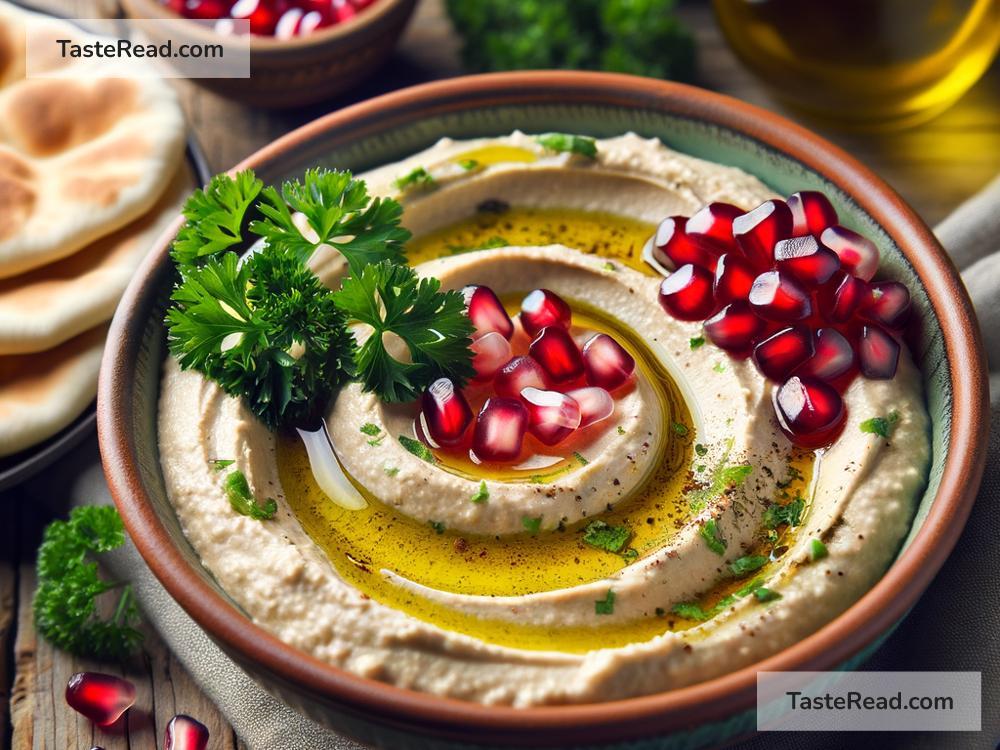Title: The Delicious Journey of Middle Eastern Baba Ganoush to Global Fame
Have you ever tasted Baba Ganoush and wondered about its story? This creamy, smoky eggplant dip is a staple in Middle Eastern cuisine, but its fame has crossed oceans and continents, making it a beloved dish worldwide. How did Baba Ganoush become such a global favorite? Let’s dive into its delicious journey.
Originating from the Levant, a region that includes modern-day Lebanon, Jordan, Palestine, Israel, and Syria, Baba Ganoush is a dish with deep cultural roots. Meaning “pampered papa” or “coy daddy” in Arabic, this dish has a playful and affectionate name, hinting at its cherished status among its people. Traditionally, Baba Ganoush is made by roasting or grilling eggplants until their skin is charred and the inside is soft and tender. The cooked eggplant is then peeled, mashed, and mixed with tahini (sesame paste), lemon juice, garlic, and various spices. The result is a rich, smoky, and creamy dip that’s impossible not to fall in love with.
So, how did Baba Ganoush spread from the Middle East to capture hearts around the globe? There are several factors at play, including migration, globalization, and the universal appeal of its taste.
Migration has played a significant role in the spread of Middle Eastern cuisine, including Baba Ganoush. As people from the Levant region moved across the globe, they brought their culinary traditions with them, opening restaurants and sharing their recipes with new communities. These diaspora communities not only provided a taste of home for those living abroad but also introduced their delicious cuisine to a global audience. Over time, dishes like Baba Ganoush began to feature on menus around the world, from Europe to the Americas to Asia, winning over diners with its unique flavor.
Globalization has further accelerated the spread and popularity of Baba Ganoush. With the rise of global trade and the internet, ingredients like tahini and spices became more widely available, making it easier for people to explore and experiment with authentic Middle Eastern recipes. Additionally, the growing interest in vegetarian and vegan diets has boosted the appeal of plant-based dishes like Baba Ganoush. Its main ingredient, eggplant, is not only nutritious but also versatile, making Baba Ganoush a perfect option for those looking to diversify their diet with healthy and flavorful plant-based meals.
Lastly, the universal appeal of Baba Ganoush’s taste cannot be underestimated. Its smoky flavor, combined with the tanginess of lemon juice and the richness of tahini, creates a delightful and complex taste experience. Furthermore, its creamy texture makes it an excellent dip for bread, crackers, or vegetables, fitting into various culinary traditions and meal settings. From casual gatherings to elegant dinner parties, Baba Ganoush has found its place at the table, charming diners with its exquisite balance of flavors and textures.
Beyond its delicious taste, Baba Ganoush also embodies the spirit of sharing and hospitality that is central to Middle Eastern culture. Served as part of a mezze platter, alongside other dishes like hummus, falafel, and tabbouleh, Baba Ganoush is more than just a dip; it’s an invitation to connect, share, and enjoy the company of others. This aspect of communal dining and the joy of sharing food has undoubtedly contributed to its popularity, making Baba Ganoush a dish that brings people together, regardless of their cultural backgrounds.
In conclusion, the journey of Baba Ganoush from a cherished Middle Eastern staple to a global favorite is a testament to the power of food to transcend boundaries and unite people. Its rich flavor, health benefits, and the warmth of the culture it represents have made it a beloved dish around the world. Whether you’re a long-time fan or have yet to try this exquisite dip, the story of Baba Ganoush is a reminder of the universal language of delicious food and the shared pleasure it brings to our lives. So, the next time you dip your bread into that creamy, smoky goodness, remember the wonderful journey that brought Baba Ganoush from the heart of the Middle East to your table, and enjoy every bite!


